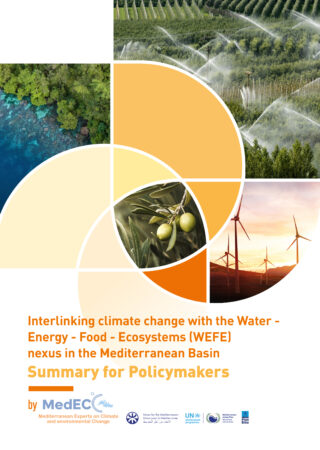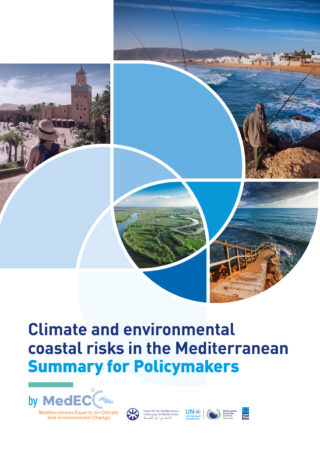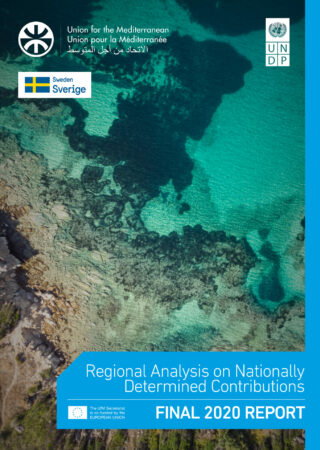
Assessment of the impacts of Climate Change on the Agriculture Sector in the Southern Mediterranean
This report provides a comprehensive assessment of climate change and its impacts on agriculture1 in the Eastern (Egypt, Israel, Jordan, Lebanon and Palestine) and Western (Algeria, Morocco and Tunisia) countries of the Southern Mediterranean, as well as the policy measures currently in place, as identified from publicly available data. The sector, on average, currently represents about 7.3% of total GDP in the region (ranging from about 1% in Israel up to over 13% in Morocco)2 and is projected to increase by about 1.5% per year, mainly through productivity improvements3 . Similarly, agriculture is a relevant source for employment in the region (13.2% of jobs in the region ranging from about 1% in Israel to over 13% in Morocco) and an essential source of food form may local communities. Agriculture is therefore an essential economic activity, as well as a source of food and jobs4 for all the countries of the Southern Mediterranean assessed as part of this study. Both at present, and potentially in the future, the sector is an essential source of both subsistence (e.g. pastoral farming systems) and economic returns across the region – see Table 1. The quantity and quality of cultivated crops, as well as basic water availability, are fundamentally impacted by local weather variables, thus making agricultural outputs particularly susceptible to a number of pressures resulting from climate change.
Authors: Matteo Bocci and Thanos Smanis with support of Noureddine Gaaloul
February 2019




